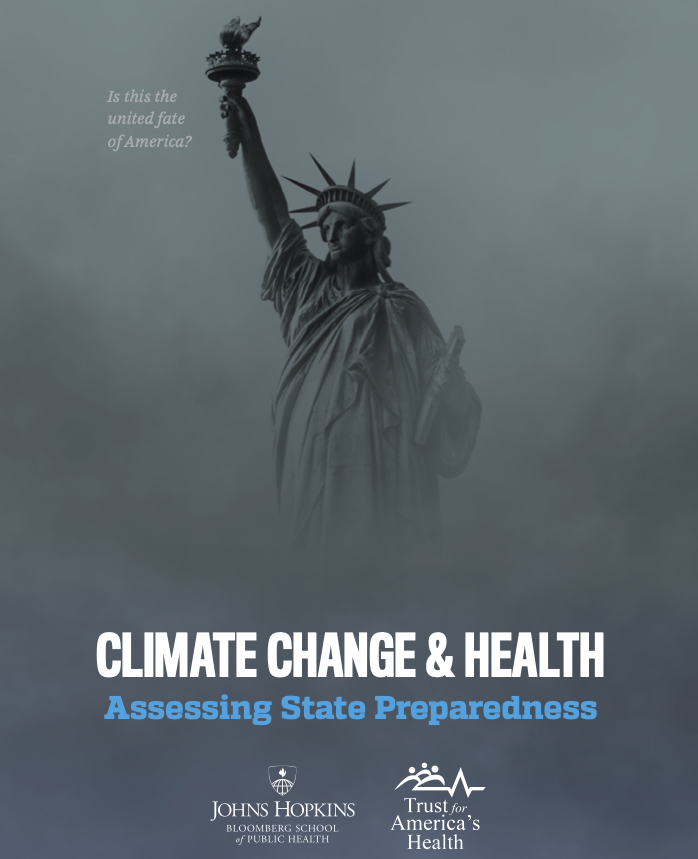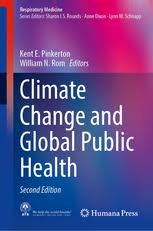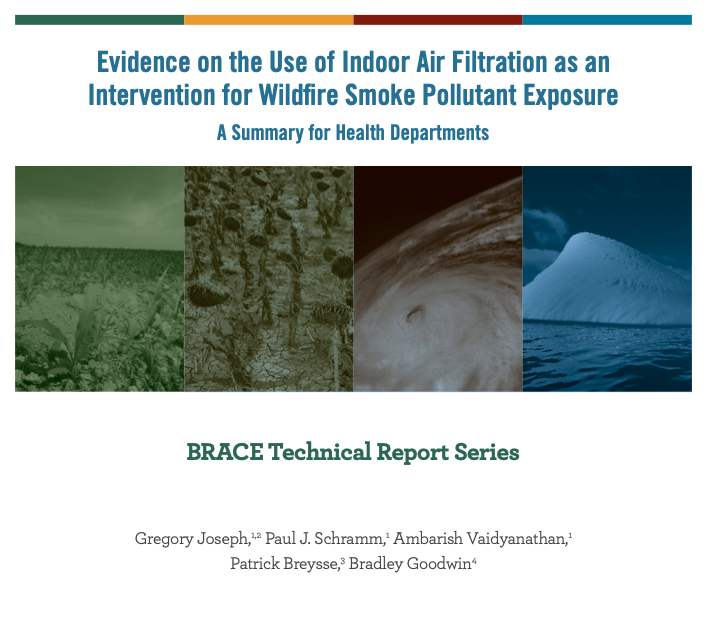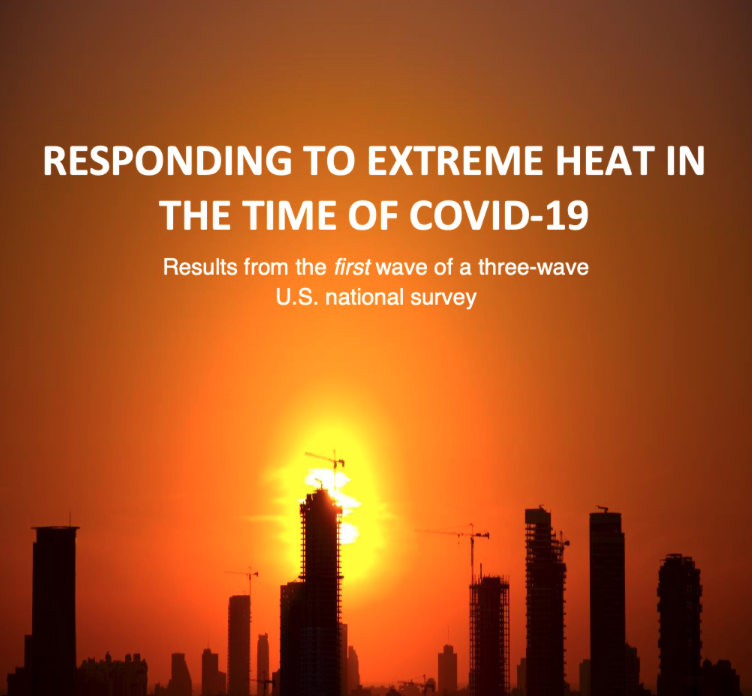A Newsletter for FL BRACE Partners, Collaborators & Stakeholders Winter 2020
|
|
Extreme Heat Risk Initiative FY2021 Funding Opportunity: Urban Climate Science for Decision-making & Evaluation of Heat-Health Interventions
 The National Oceanic and Atmospheric Administration (NOAA) Extreme Heat Risk Initiative is soliciting proposals for projects that support decision making in communities grappling with the health impacts of extreme heat. This competition seeks activities that will improve the climate information and services available to inform consideration, selection, and evaluation of actions, plans, programs, and policies to improve resilience to heat in urban areas. Specifically, this competition seeks to expand on NOAA-supported urban heat mapping campaigns, combining the observations, modeling and outputs from them with new experimental methods and follow-on applied research.
This competition will be constrained to proposals that focus on communities involved in the NIHHIS-CAPA public-private partnership (see: NIHHIS campaign cities), and that leverage the openly available urban heat island data produced via the community science urban heat island field campaigns.
LOIs are due January 8; full proposals are due February 15, 2021. Learn more about this opportunity here.
|
NIHHIS-CAPA Urban Heat Island Mapping Campaign: Applications Now Open for 2021 Cohort
NOAA's Climate Program Office and the National Integrated Heat Health Information System (NIHHIS), in partnership with Climate Adaptation Planning and Analytics (CAPA) Strategies, are now accepting applications from organizations interested in participating in the 2021 cohort of NIHHIS-CAPA Urban Heat Island mapping campaigns. Pending the availability of funds for FY21 (see FAQ for more details), and the amount of matching funds provided by communities, it is anticipated that financial assistance will be able to support campaigns in 5 to 10 communities.
Over the past three years, NOAA has funded CAPA Heat Watch to support 21 communities across the United States in mapping their urban heat islands (UHI). CAPA Strategies has developed a process to help cities plan and execute a volunteer-based community science field campaign that builds upon local partnerships, engages residents in a scientific study to map and understand how heat is distributed in their communities, and produces high-quality outputs that have been used in city sustainability plans, public health practices, urban forestry, research projects, and other engagement activities.
*If you are interested in collaborating with Florida BRACE on either of these competitions, or if you would like technical assistance, please contact Chris Uejio at cuejio@fsu.edu or email flbrace@coaps.fsu.edu.
|
|
PUBLICATIONS AND RESOURCES
Climate Change and Human Health Literature Portal
This integrated, curated bibliographic database, developed by the National Institute of Environmental Health Sciences, contains global peer-reviewed research and gray literature on the science of climate impacts on human health.
Climate Change & Health: Assessing State Preparedness  This report, led by Johns Hopkins Bloomberg School of Public Health in collaboration with Trust for America's Health, assesses states' overall level of public health preparedness to climate change. The study finds that some of the states that are the most environmentally and socioeconomically vulnerable to climate-related health harms are the least prepared to handle them. Florida ranks among the states found to be most vulnerable and still has more work to do to be better prepared.
 Climate Change and Global Public Health Climate Change and Global Public Health This book is a guide to the research, findings, and discussions of US and international experts on climate change and respiratory health. Since the publication of the first edition, climate change has been increasingly acknowledged as being directly related to the prevalence and incidence of respiratory morbidity. This second edition is fully updated to include the latest research by international experts on topics such as heat waves causing critical care-related diseases, climate-driven air pollution increases, and high-level ozone and ozone exposure linked to idiopathic pulmonary fibrosis, lung cancer, and acute lower respiratory infection.

Evidence on the Use of Indoor Air Filtration as an Intervention for Wildfire Smoke Pollutant Exposure
The CDC has created technical guidance on wildfire and indoor air quality. The document summarizes the available peer-reviewed literature about the effectiveness of air filtration as an intervention to decrease exposure to wildfire smoke and protect health when sheltering indoors. It describes the different types of air filtering technology and metrics for measuring air quality and summarizes the literature on their effectiveness in protecting against the harmful air pollutants in wildfire smoke.
 Responding to Extreme Heat in the Time of COVID-19: Results from a three-week U.S. national survey Responding to Extreme Heat in the Time of COVID-19: Results from a three-week U.S. national surveyThis project is funded by the NSF RAPID grant to study how perceptions and responses to two concurrent hazards (e.g., extreme heat and COVID-19) may affect the population's health risks. As such, this project focuses on extreme heat vulnerability and capacity at a household-level, placed within the larger context of the COVID-19 pandemic and explores the experiences, risk perceptions, behaviors, and coping self-efficacy of the U.S. population.
Framework for a Community Health Observing System for the Gulf of Mexico Region: Preparing for Future Disasters The Gulf of Mexico and other regions of the U.S. lack sufficient baseline health information to identify, attribute, mitigate, and facilitate prevention of major health effects of disasters. This paper proposes a system that combines six levels of health data domains, beginning with three existing, national surveys and studies plus three new nested, longitudinal cohort studies. The observing system is designed to continue indefinitely to ensure that essential pre-, during-, and post-disaster health data are collected and maintained.
|
A RETROSPECTIVE OF FLORIDA BRACE ACTIVITIES IN 2020
The COVID-19 pandemic, as well as a record-breaking hurricane season, has made even more apparent the important intersections of climate variability and public health and the importance of preparing and mitigating for concurrent disasters. Despite the challenges of 2020, the Florida BRACE program continued to make significant progress on its goals and objectives. Below, we highlight a few of the many accomplishments of 2020. We look forward to continuing to advance our mission in 2021 to improve the ability of the public health sector to respond to the health effects of climate variability across Florida.
|
|
Staffing Changes
The Florida BRACE team underwent a few staff changes in 2020. We welcomed our new program coordinator, Dr. Emily Powell. Emily is a climate and hazards scientist who is helping the Florida BRACE team with outreach, communications, and research. We said goodbye to Tracy Ippolito as the project manager with Florida BRACE as she began a doctoral program at Florida State University. Finally, Dr. Ava Holt, post-doctoral scholar and evaluator, has also moved on to pursue new career opportunities. We wish them all the best!
|
|
Outreach Activities
Webinar Series
Florida BRACE continued its webinar series in 2020 featuring two webinars. In August, State Climatologist David Zierden discussed climate change and variability in Florida; in November, Carol Jeffers with the Sarasota County Department of Health shared insights on the importance of public-private partnerships in disaster mitigation and recovery for vulnerable populations.
Newsletters The Florida BRACE program continued to disseminate newsletters and announcements throughout the year to provide the program's technical and community advisory groups and others working at the intersection of climate change and public health with important updates and relevant news.
Monthly Climate Updates The Florida Climate Center, a FL BRACE partner, releases monthly climate summaries for Florida. These summaries describe the state of the climate with monthly temperature departures from normal and monthly precipitation departures from normal for select cities, as well as records tied or broken during the month. The summaries also include information about hazardous weather events and drought conditions. Access the monthly climate summaries here.
|
|
Ongoing Projects
Monroe County Special Needs Shelter (SpNS) Response during Hurricane Irma
This evaluation focused on the preparedness and evacuation response measures of a local Special Needs Shelter (SpNS) in Florida during Hurricane Irma. We identified the facilitating and constraining factors that influenced the emergency response, operation, and management of Monroe County's SpNS Program during Hurricane Irma. We shared recommendations for disability-inclusive disaster planning, such as the inclusion of people with disabilities in disaster planning and policy development to improve their disaster risk reduction and enhance their resilience during natural disasters.
Verifying Wet-Bulb Globe Temperatures for Improved Heat Warning Systems
Florida BRACE investigators are working to verify the accuracy and reliability of wet-bulb globe temperatures (WBGT) from the National Digital Forecast reanalysis weather model by comparing model output with estimates of WBGT values from weather observation data for stations throughout the country. The results, which are expected by summer or fall of 2021, will help to improve heat warning systems by providing reliable WBGT information to the public.
|
FL BRACE COMMUNITY ADVISORY GROUP (CAG)
Individuals and organizations in the community serving vulnerable populations
FL BRACE is working to create and strengthen relationships with agencies or organizations who serve vulnerable populations -- including, but not limited to, lower income households, social service organizations, churches, the homeless, older adults (age ≥ 65), and people with preexisting conditions. So if you or someone you know represents an agency or organization whose work with vulnerable populations would benefit from timely heath and climate information, please encourage them to join our Community Advisory Group (CAG) by contacting FL BRACE.
|
We Wish You a Safe and Happy Holiday Season!
|
|
|
FL BRACE CONTACTS
Dr. Chris Uejio (Principal/Lead Investigator), Department of Geography, Florida State University
Dr. Tisha Holmes, (co-PI) Department of Urban and Regional Planning, Florida State University
| Dr. Emily Powell, FSU Center for Ocean-Atmospheric Prediction Studies and the Florida Climate Center
| David Zierden, Florida Climate Center, FSU Center for Ocean-Atmospheric Prediction Studies
Yoonjung Ahn, PhD Student
Department of Geography, Florida State University
|
STAY CONNECTED WITH FLORIDA BRACE  
|
|
|
|
|